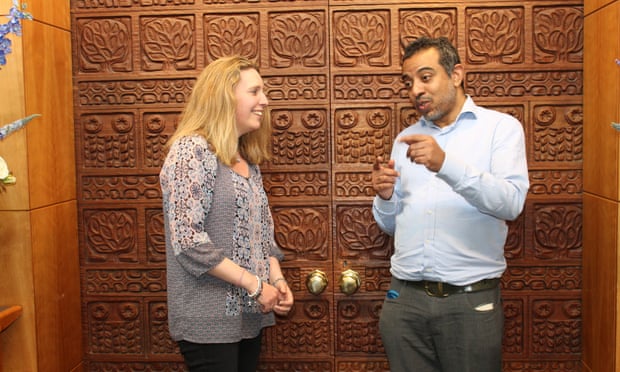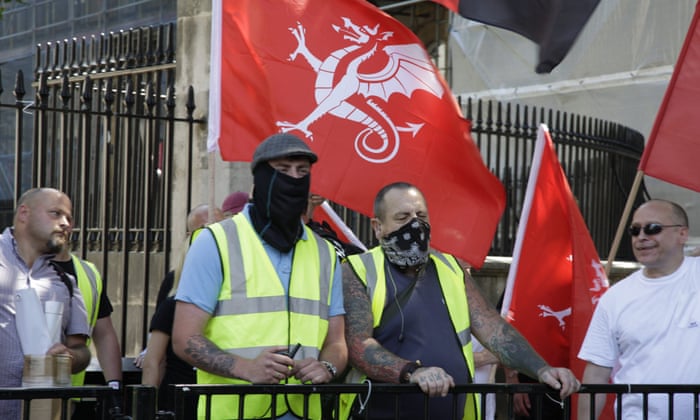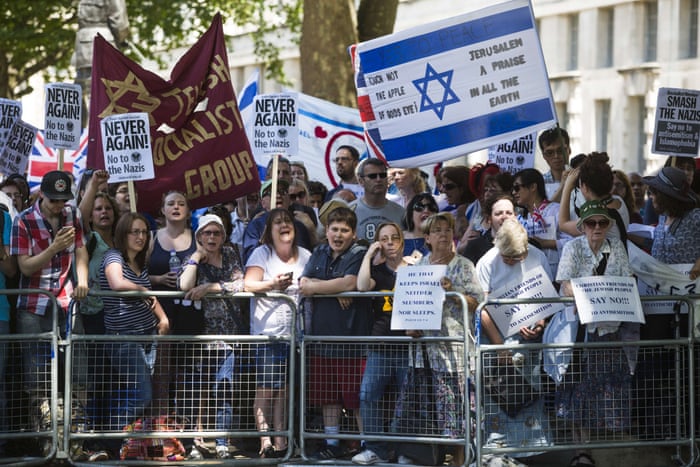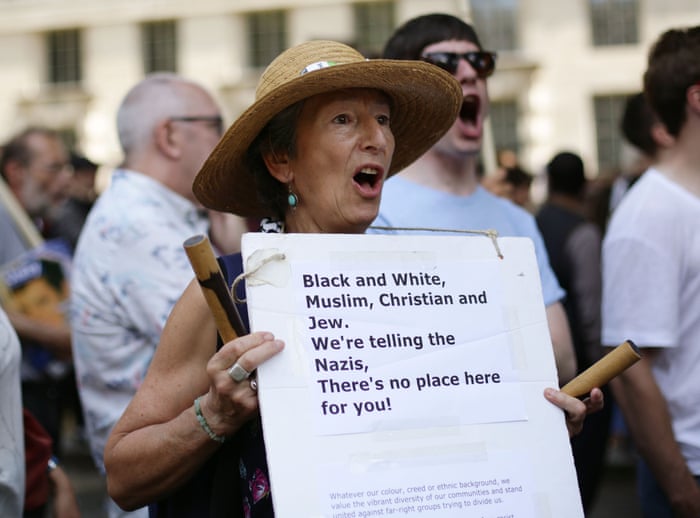Know your friends from your enemies

Rabbi Miriam Berger with local Somali Bravanese community leader Abubakhar Ali. See 2nd item. Photo by Hadani Ditmars/Guardian
Amid a wave of high-profile racially motivated violence, there seems to be a growing trend of interfaith solidarity. Can it make a difference in the world?
By Hadani Ditmars, Ha’aretz
July 07, 2015
As a journalist who has reported from conflict zones for over two decades, cynicism is easy. And as war and terror make global headlines, and the numbers of displaced are higher than ever, apocalyptic narratives are seductive.
But as I’ve discovered while researching a documentary on interfaith solidarity, there seems to be a growing trend toward reversing familiar cycles of hate – in effect, subverting them through unexpected shows of unity.
Consider how – despite the background of ongoing racial violence in the United States – the murder of nine parishioners in Charleston, South Carolina did not meet assassin Dylann Roof’s stated aim of igniting a race war, but rather sparked unprecedented shows of forgiveness, love and unity between blacks and whites. Or how a recent attack on a Catholic church in Ontario, Canada by a mentally ill young Muslim man, was met by an immediate show of solidarity and a pledge of repair funds by a local mosque. Or even how the recent arson attack in Israel on the historic Church of the Loaves and Fishes by Jewish extremists was met by an online Israeli campaign to raise funds for its repair.
But can small acts of kindness make a difference in a world full of hostilities?
Just ask Rabbi Miriam Berger, of the North Finchley Reform Synagogue in London. On Sunday – the 17th day of Ramadan, and the 17th day of the Jewish month of Tammuz- she hosted an interfaith iftar with a group of Somali Muslims. The Somalis – members of the Bravanese minority – had their community centere destroyed in a racist attack in June 2013, during a week of violent Islamophobic acts throughout the UK following the murder of private Lee Rigby. While a suspect was caught on video lighting fires inside the centre, and EDL – the English Defence League – was found scrawled outside, no arrests were made.
While the Bravanese are still waiting for the local council to allocate new premises, the synagogue has been hosting their evening prayers every night for the third Ramadan in a row. In an unexpected consequence of a violent act, members of both communities have bonded over shared meals of gefelte fish and Somali cuisine, and even held a joint Sukkot celebration to raise awareness of the plight of the Bravanese and their centre.
The planned demonstration by neo-Nazis to protest against Shomrim, a Jewish neighbourhood watch scheme in Golders Green, was moved by the police to central London on July 4th. The little group (about 20 people) of antisemites, who chanted against the ‘Jewification’ of Britain were hugely outnumbered by a counter-demo and police. Photos show, from top, 1) The contingent from the far-right English nationalist groupuscule, Englisc [sic] Resistance, photo by Charlie Bard/Demotix/Corbis; 2) far-right nationalist Polish group, Narodowe Odrodzenie Polski, National Revival of Poland, photo by Will OliverEFE/EPA; 3) unusual unity amongst British Jews in countering the neo-Nazis, photo by Jack Taylor/AFP/Getty Images; 4) Naomi Wimborne-Idrissi, anti-Nazi, J4BIG and JfJfP, photo by Yui Mok/PA.
Their interaction suggests a model that could well move beyond the confines of their North London neighbourhood.
“We have received as much as we have given,” says Rabbi Berger. “In addition to escaping ‘the trap’ of “perceived relationships between Jews and Muslims globally, there is something incredibly powerful about facilitating other people’s rituals.”
There is also something very resonant about the experience of both communities – and not just in terms of the Abrahamic tradition. Rabbi Berger sees incidents of Islamophobia and antisemitism in the U.K. as opportunities for solidarity.
Many members of the synagogue are refugees from 1930s Europe, or descendants of refugees. The local Jewish community’s response to the arson attack was visceral, says Rabbi Berger: “It was hard not to think of Kristallnacht.”
For Bravanese community leader Abubakhar Ali, it was hard not to think of Somalia, and the persecution his community had fled.
Ali first came to the U.K. from war-torn Somalia in 1992. He settled in Finchley because he had a cousin there, and he never dreamed he’d one day find an extended family among the local Jewish community. As the Finchley Bravanese community swelled to some 2,000 members, they raised £100,000 from local businesses and other donors to renovate a derelict building into a thriving community centre. The centre offered English classes for immigrants, a nursery school, job training and crime prevention for youth as well as special programmes to help immigrant women integrate into English society.
The day the centre was torched, “my brother pounded on my door at 5 A.M. and told me the centre was on fire. I ran over to see what was going on and saw the whole place in flames,” recalls Ali. The centre was completely destroyed. “I felt like giving up,” recalls Ali.
But an email Rabbi Berger sent expressing condolences, concern and offering help, restored his hope.
Now, two years later, the interfaith iftar, where a packed room of Muslims and Jews sang “salam/shalom” together, happened the day after a neo-Nazi rally protesting the “Jewification” of Britain was thwarted by a robust response from progressive protestors of many faiths.
Rabbi Berger recently commented to me, “I could give a litany of examples of recent events in the world which are all the worst examples of ‘sinat chinam’, senseless hatred.
“The only antidote for ‘sinat chinam’ is ‘gemilut chasadim’, acts of loving kindness, and there is no better example than the relationship we have built up with the Somali Bravanese community. Who would have thought that out of an expression of hate such as the arson attack on their community center in 2013, would come something that gives us such hope?”
What began as a small-scale community initiative has already been transmitted globally. The iftar was filmed by a BBC Somalia crew and was broadcast on Monday to the strife-ridden nation.
While it’s easy to feel like “giving up” in the midst of so many conflicts worldwide, it’s comforting to know that small steps can lead to major milestones. Let’s hope there are many such “copycat” acts of solidarity to come. Things can only get better.
Canadian journalist Hadani Ditmars is the author of “Dancing in the No-Fly Zone: a Woman’s Journey Through Iraq” and a past editor at New Internationalist. She has been reporting from the Middle East for two decades.
The Somalis who mark Ramadan – in a synagogue
Finchley Reform Synagogue in north London hosts local Bravanese after their community centre was burned down in an arson attack
By Hadani Ditmars, The Guardian
June 26, 2015
When Ramadan gets under way this week, a group of Muslims in north London will gather for prayers not in a mosque, but a synagogue.
In a tale of interfaith tolerance for our times, the Finchley Reform Synagogue has been hosting local Bravanese people – members of an Islamic community from south-east Somalia – since their nearby community centre was burned down in an arson attack two years ago.
The cohabitation has broken down stereotypes on both sides. “Now we really look forward to Ramadan,” said Jon Freedman, an outreach organiser at the synagogue. “It’s become another holiday on our community calendar.
“We hope they get their own centre soon,” Freedman added, “but it’s been a wonderful experience hosting them here.”
Friendships have developed over shared meals of gefilte fish and Bravanese donuts called kalamati, and the two communities recently held an interfaith sukkot festival at a local shopping mall.
The Bravanese community centre was gutted by fire on 5 June 2013, 10 days after the killing of fusilier Lee Rigby in Woolwich, south London. Video footage showed a suspect lighting several fires within the building. Graffiti extolling the English Defence League was daubed on a nearby building.
“When the arson attack happened, there was a visceral response from the local Jewish community,” said Rabbi Miriam Berger. “It was hard not to think of Kristallnacht [when German Nazis attacked Jews and their property in 1938].”
For Somali community leader Abubakhar Ali, the response from the Jewish community was welcome, even if some of his fellows were uncertain about worshipping in a synagogue.
“Members of my community were a little concerned,” said Ali. “For many it was their first time ever in a synagogue.”
Soon, however, they were won over by the generosity and sincerity of their hosts.
There was some trepidation from the synagogue congregation about opening up to a group of Muslim strangers.
“But I remember having a very peaceful feeling that first evening of Ramadan prayers,” said Freedman, who was one of the volunteer hosts who bonded with the Bravanese over a series of impromptu iftars, the evening meal with which Muslims end their daily fast during Ramadan.
“We have received as much as we have given,” said Berger. In addition to escaping “the trap” of “perceived relationships between Jews and Muslims globally”, she said there was “something incredibly powerful about facilitating other people’s rituals”.
Negotiations with Barnet council for new premises for the Bravanese community are ongoing. Citizens UK and an active interfaith alliance that includes FRS are working with the Bravanese to ensure that the council lives up to its promise to provide a new community centre of the same standard as the one destroyed by arson.
While offering hospitality to the Bravanese is an expression of Jewish values, Rabbi Berger said: “It’s also a demonstration of how easy it is to have harmony between different cultures and faiths. We are discovering that we have more in common than we think.”
More on Shomrim




